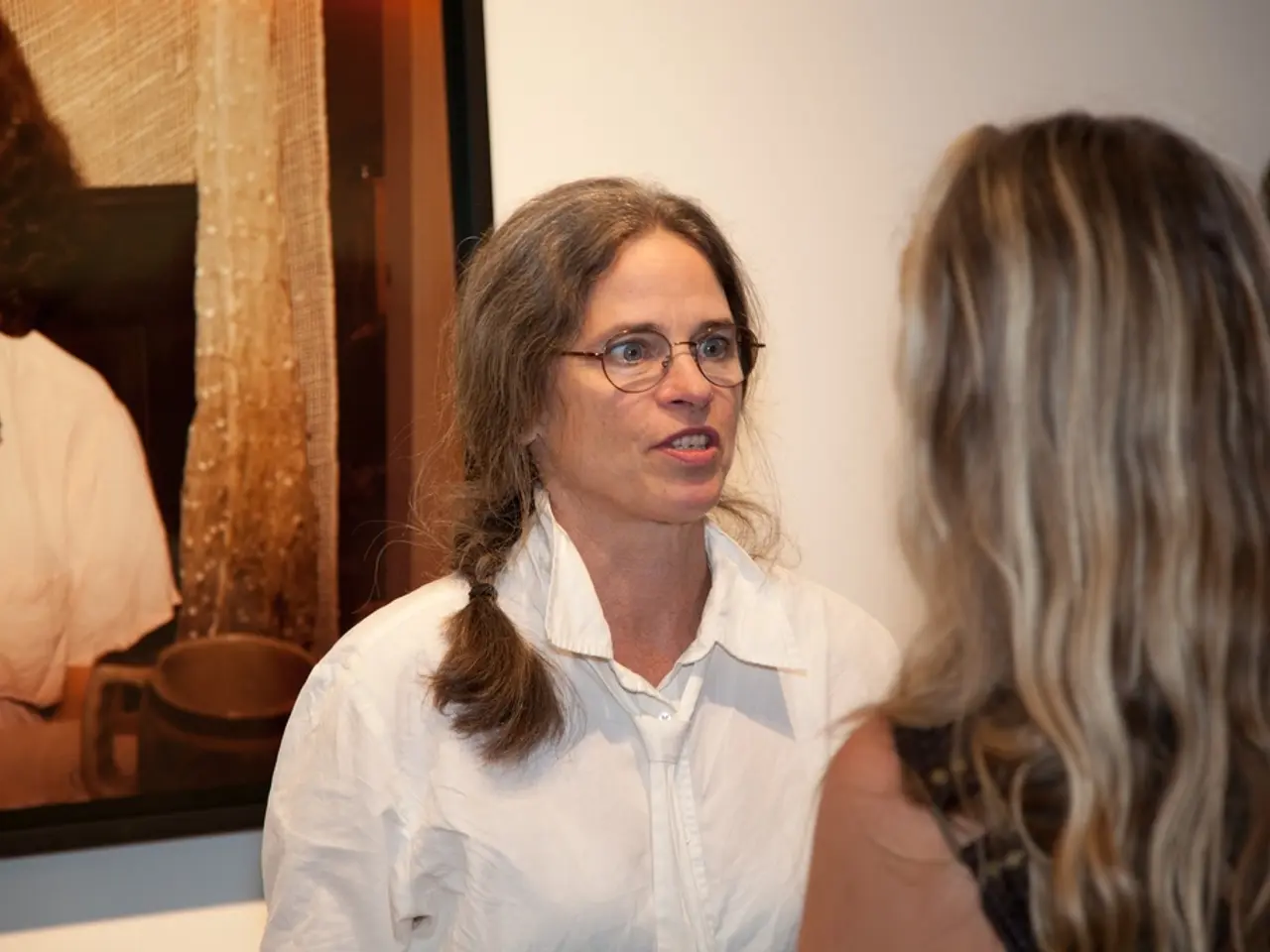Berlin Women's Centre Shutdown Due to Employee's Pro-Palestine Advocacy
In a recent turn of events, Germany's Frieda Frauenzentrum, a well-known women's centre known for its advocacy of feminist and social justice issues, has found itself embroiled in a contentious situation. The centre, which has been a strong supporter of Palestinian solidarity movements, has faced the termination of contracts and funding from local and governmental bodies in Germany.
The decision to terminate funding has been linked to concerns and accusations regarding the centre’s public statements and activities related to Palestinian solidarity. Critics argue that Frieda Frauenzentrum’s solidarity actions may be seen as controversial, potentially involving allegations of endorsing or supporting groups or narratives viewed as politically sensitive or even anti-Israel by some stakeholders.
However, supporters of the centre view the termination as an unjust suppression of legitimate political speech and activism. They argue that solidarity with Palestinians is an important human rights stance and that the funding cut represents political censorship or discrimination.
The controversy surrounding Frieda Frauenzentrum reflects broader tensions in Germany and Europe around funding for organizations involved in Middle East politics, debates over anti-Semitism, criticism of Israeli government policies, and freedom of political expression.
Recent incidents include the closure of the centres Alia and Phantalisa, located in Friedrichshain and Kreuzberg, Berlin, initiated by the youth welfare office of Berlin's district councillor, Max Kindler. In a letter, Kindler provided three reasons for the closure: two board members were seen at Palestine solidarity vigils, one board member shared antisemitic content on social media, and another participated in a Palestine Congress.
The Palestine Congress, which was branded by German media as an antisemitic "hate summit" and a "congress of Jew haters", was also disrupted when it was shut down two hours into the conference by the police.
The case of Frieda Frauenzentrum raises wider questions about political expression, state funding, and the limits of activism in Germany today. The centre has released a statement expressing concern over employee monitoring and profiling of private activities outside working hours.
Last week, the Berlin resident Udi Raz, an Israeli who helped organize the Palestine Congress, lost his job for referring to Israeli "apartheid" and has since been branded an antisemite. Frieda Frauenzentrum was founded in 1990 and identifies as a queer-feminist organization.
The controversy continues to unfold, with legal challenges and statements from involved parties expected in the coming weeks.
- The termination of contracts and funding for Frieda Frauenzentrum, a women's center in Germany, has sparked an analysis of the middle east politics within the European Union, particularly concerning Palestinian solidarity movements.
- Ongoing news reports have featured the center's situation, with opinion pieces arguing that the funding cut represents a violation of freedom of political speech and activism.
- Some media outlets have labeled the center's activities as endorsing anti-Israel narratives, contributing to escalating tensions around Israel-Palestine relations.
- The recent closure of Alia and Phantalisa centers, also involving Palestinian solidarity, has added to the debate over policy-and-legislation and its impact on social-media-driven activism.
- In the realm of health-and-wellness and workplace-wellness, workers in Germany are expressing concerns over mental-health impacts due to increased surveillance and potential employment discrimination.
- The intersection of women's health and this controversy is a growing focus, with some commentators examining the role of gender in these funding decisions.
- Meanwhile, entertainment media outlets have covered the controversies, including the Palestine Congress labeled as an antisemitic "hate summit," and its disruption by police.
- The ongoing crisis around Frieda Frauenzentrum has further fueled discussions on war-and-conflicts, crime-and-justice, and their influences on the broader political landscape.
- As the situation evolves, policy makers will likely have to address issues of general-news reporting responsibility when dealing with sensitive topics, ensuring balanced, fair, and accurate coverage for all perspectives.








